Майкл Смит - The Lonely Dead
Здесь есть возможность читать онлайн «Майкл Смит - The Lonely Dead» весь текст электронной книги совершенно бесплатно (целиком полную версию без сокращений). В некоторых случаях можно слушать аудио, скачать через торрент в формате fb2 и присутствует краткое содержание. Год выпуска: 2004, Жанр: Альтернативная история, Детективная фантастика, Социально-психологическая фантастика, на английском языке. Описание произведения, (предисловие) а так же отзывы посетителей доступны на портале библиотеки ЛибКат.
- Название:The Lonely Dead
- Автор:
- Жанр:
- Год:2004
- ISBN:нет данных
- Рейтинг книги:4 / 5. Голосов: 1
-
Избранное:Добавить в избранное
- Отзывы:
-
Ваша оценка:
- 80
- 1
- 2
- 3
- 4
- 5
The Lonely Dead: краткое содержание, описание и аннотация
Предлагаем к чтению аннотацию, описание, краткое содержание или предисловие (зависит от того, что написал сам автор книги «The Lonely Dead»). Если вы не нашли необходимую информацию о книге — напишите в комментариях, мы постараемся отыскать её.
The Lonely Dead — читать онлайн бесплатно полную книгу (весь текст) целиком
Ниже представлен текст книги, разбитый по страницам. Система сохранения места последней прочитанной страницы, позволяет с удобством читать онлайн бесплатно книгу «The Lonely Dead», без необходимости каждый раз заново искать на чём Вы остановились. Поставьте закладку, и сможете в любой момент перейти на страницу, на которой закончили чтение.
Интервал:
Закладка:
'No. He's just a cop.'
'Did you get to Dravecky?'
'Yes. He confirmed things I'd already begun to work out. You have no idea what we're up against.'
'I think I do.'
'No, you really don't. I mentioned Roanoke to see if it sparked anything. I watched your face for some sign that you'd got anywhere by yourself, and I saw nothing. How can that be, Ward? What have you been doing all this time?'
'Trying to stay alive.'
'Hiding, you mean. For what? Once you know about these people, there's no way back. You can't just sit and watch television and jerk off. There's no happy families, no walks along the beach, no normal life. There's nothing to do and nowhere to go.'
'John, what is it that you think you know?'
'The Indians didn't kill the settlers at Roanoke, Ward. The Straw Men did.'
I stared at him. 'What?'
'The Croatoans knew all about it. They told the next group of settlers that 'another tribe' did it, that another tribe had killed the fifteen left behind from the second expedition. That other tribe was the Straw Men. Ancestors to them, anyway, trying to wipe out other Europeans before they could get a foothold in a country that had been quietly theirs for a long, long time. They took out the next expedition too, except they kept some of the women and children — guess why. They did the same with the Spanish and with everyone else, whatever chance they got. That's why the word 'Croatoan' was on that cabin. Then it was a blatant attempt to pass the blame: now it's come to mean 'we were here' or 'this is our place'.'
'The Straw Men were here back in the 1500s? Get real.'
'They were here long before that. They got here first, Ward. They stole America from the locals four thousand years before anyone else even knew it was here. You ever hear of a place called Oak Island?'
I shook my head. He wanted to tell, and I wanted to hear. But most of all I wanted him to keep talking, in case his voice made it through to the next room, and Nina was awake, and could hear I was still alive.
'It's a tiny rock off Nova Scotia. In 1795 a guy called McGinnis discovered an old shaft covered by flagstones made of rock you don't find in the area. Since then hundreds of people have tried to find what's at the bottom. When they dug it in 1859 the thing flooded because there was a clever second tunnel which led out to the sea. They're still trying. They've gone down through six oak platforms, down and down to two hundred feet without hitting the bottom. Nobody knows who put it there, they've guessed at everything from privateers to Vikings to the Knights Templar.'
'So who was it?'
'The Straw Men. The pit is nearly a thousand years old. It was one of the places they stashed money once they realized they couldn't keep the continent to themselves for much longer.'
'But who are they?'
'No one, and everyone. They came from all over the world at different times. Phoenicians, Romans, Irish, ancient Egyptians, Portuguese, Norse. The Romans conquered half the world, moved tens of thousands of men across whole continents — you really think some of them couldn't make a few hundred-mile hops up around the North Atlantic? They came in handfuls, people who didn't want to live with the new rules of the world, who didn't want any part of the way it was going, especially after Christianity started screwing things for the old beliefs. There are signs of them all over the country, pieces of suppressed evidence. Western artefacts in the wrong strata, ancient Chinese coins in the North West, folk tales of natives speaking English or Welsh, a hidden Egyptian shrine in the Grand Canyon, old Celtic Ogham script carved into rocks in New England, megaliths in New Hampshire, legends of red-haired Indians in Oregon. The New World has always attracted those who didn't like the old one, who thought it was getting tainted with the virus of modern civilization — and gradually the groups came into contact and worked together. Every now and then a story would leak back — the journey of St Brendan, or the Piri Reis map, showing sections of the world we now claim we didn't know about back then — but it was always quashed. The Straw Men wanted the place to themselves, their own private country and kingdom and lair — not least because it was making them rich.'
'How, precisely?'
'Copper. Starting from 3000 BC, half a million tons of copper was mined out of the upper peninsula in Michigan. Five thousand mines, stretching one hundred and fifty miles, with work taking place over the course of a thousand years.'
'I've never heard anything about that.'
'Strange, huh? Despite the fact they left behind millions of tools and thousands of holes. Where did five hundred thousand tons of copper go? It was exported around the world, and it's what first made the Straw Men rich — and gave them the power to keep the place secret. When anyone here gave them trouble, they simply took them out. They took out the Anasazi when it looked like their civilization was getting too advanced. They wiped out Roanoke. They nearly did the same with Jamestown. They just picked off as many of the pioneers as they could. In the middle of the diary of Patrick Breen, a member of the Donner party, there's this weird reference where he says in the entry for Friday 18th: 'Saw no strangers to day from any of the shantys'. What strangers? Through the rest of the diary, there's no mention of these 'strangers'. What were they doing out there, out in a place so remote that the original party was dying left and right and — interestingly — starting to eat each other? Who were they?'
'Straw Men, presumably, according to you.'
'Yes. They were here before us. They had always been here. People knew, occasionally came into contact with them, but it didn't fit in with our genesis myths for the country we've become and so gradually mention of them died out.'
'And they just gave up?'
'Of course not. But you can't fight an influx of millions of sane people, and there's never been many of the Straw Men. They faded into the shadows, did their business the quiet way. I think they have connections with the neo-Conservatives now, but I'm never going to prove it. They make their money and do the things they like to do, the kind of things we're not supposed to do any more, and every now and then they create an atrocity just to keep their hand in and honour the gods. It's their way.'
'Murder isn't a belief system.'
'Yes it is, Ward. That's exactly what it is. We all did it. These days we only ever kill out of hate, or through greed, or as a punishment, but for a hundred thousand years our species believed in a kind of killing that was to do with life and hope.'
'Which was what?'
'Sacrifice. We sacrificed animals, and we sacrificed each other. Sacrifice is killing for magic purpose, and serial murder is a misplaced version of this instinct. They're turning teenage girls and lost boys into symbols of the 'gods' — perfect, unattainable, cruel — and their whole MO is a curdled version of an ancient ritual.'
'I don't get it.'
'Every step is the same. They make preparations, choose a victim; they take the victim off to a secret place, then wash/feed/attempt to communicate with them — honouring before sacrifice. They may have sex with them, too, and partly this is an attempt to mate with these gods but it's also because sexual dysfunction is the only thing strong enough to pull modern man down through civilization back to these elemental, innate impulses. Then they sacrifice them or 'kill' them, to use another word. Sometimes they'll eat parts, to take on their power. They'll often keep a piece of the victim or their clothes, much like a bear's pelt or a wolf's tooth, putting it in a special place, keeping it with them to keep the dead alive. Does this not sound familiar to you?'
Читать дальшеИнтервал:
Закладка:
Похожие книги на «The Lonely Dead»
Представляем Вашему вниманию похожие книги на «The Lonely Dead» списком для выбора. Мы отобрали схожую по названию и смыслу литературу в надежде предоставить читателям больше вариантов отыскать новые, интересные, ещё непрочитанные произведения.
Обсуждение, отзывы о книге «The Lonely Dead» и просто собственные мнения читателей. Оставьте ваши комментарии, напишите, что Вы думаете о произведении, его смысле или главных героях. Укажите что конкретно понравилось, а что нет, и почему Вы так считаете.

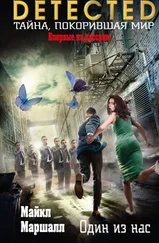
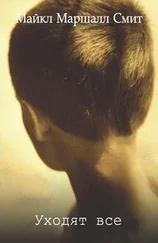

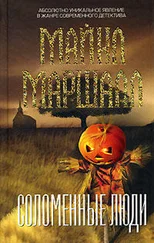
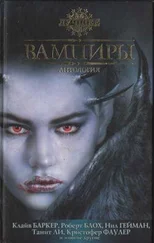

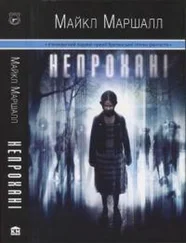
![Майкл Смит - Ханна Грин и ее невыносимо обыденное существование [litres]](/books/408571/majkl-smit-hanna-grin-i-ee-nevynosimo-obydennoe-su-thumb.webp)
![Майкл Смит - Те, кто приходят из темноты [litres]](/books/412959/majkl-smit-te-kto-prihodyat-iz-temnoty-litres-thumb.webp)


